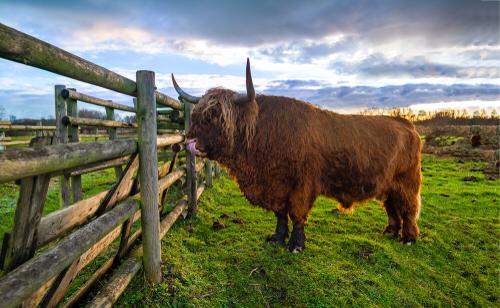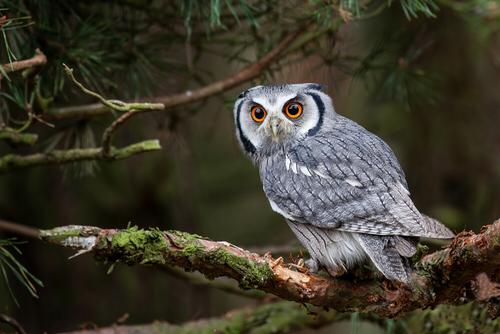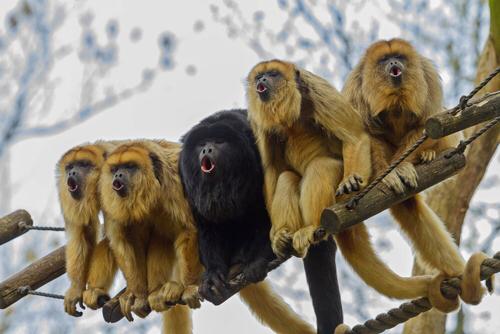Our limited understanding of animals often translated into our culture... here are some cool myths and thoughts surrounding some of them!
Before zoology and the internet, people didn't always understand the animals around them. Some looked scary, and some looked glorious, often inspiring magical stories that are still told to this day. Many such stories have become part of mythology, whether it’s the animals in the Jataka tales or those in Greek mythology. Here are some animals with interesting stories behind them!
Snakes

This one is pretty well known, and across most cultures, snakes have a reputation. Among Romans, snake spirits were believed to protect their homes. Among the Hopi people (a Native American tribe) there are stories of water snakes being associated with springs. In fact, in many cultures, snakes are associated with rebirth and healing because they constantly outgrow and shed their skin. But in many cultures where the Bible takes centre stage, they are seen as creatures of treachery. In Japanese culture, snakes and snake-life dragons often play evil roles.
Butterflies

Butterflies, because of their physical transformation, have often been associated with stories of transformation. In Greek mythology, butterflies were symbols of the soul's transformation after death. In fact, the Greek word for butterfly and soul is the same! Similar stories pop up across various other cultures too! In Japan, if a butterfly flies into your room, they say that the person you love most is coming to visit you. But it's not all positive. In Devon, UK people would kill the first butterfly of the year to avoid bad luck. In the Philippines, sighting a black butterfly or moth in the house is an omen of death in the family. Where a single butterfly is a good omen in Japan, a swarm of butterflies is thought to an omen of coming evil.
Bulls

These massive and strong animals have so many myths about them! Representing across most cultures, the bull is often considered being sacred. In India, the sacred bull is often represented in the form of Nandi. Taurus, a key constellation, is also the shape of a bull. In Egyptian culture, the ancient word for bull and power is the same. Across many cultures, in fact, the bull is always seen as a sign of virility, power and strength. Bulls have also taken on villainous roles in the same cultures where they are respected! In Greek mythology, there are few who don't know about Minotaur... a hybrid monster with the head of a bull.
Dogs

Dogs and other members of the canine family have also long had many myths and stories around them. In Native American mythology, coyotes often take on human form to trick people. In Greek mythology, dogs pop up everywhere! From being sacred to gods Artemis and Ares to Cerberus the three-headed dog that guarded Hades' realm of the underworld. An Aztec god of death was often depicted to have the head of a dog — similar to the jackal-headed Anubis, the god of the underworld in Egyptian mythos. In Indian mythology, the righteous Yudhishthira approached heaven with his dog. In many Islamic cultures, however, dogs are seen as unclean and must not be touched. Another religion or culture that portrays dogs negatively is Judaism where dogs are associated with violence and filth.
Owls

Owls have long captured humans' imagination and have so many contradictory beliefs about them! In Africa, owls are bad luck, and omens of death. In Japan, owl talismans and figurines are popular because the birds are considered lucky. Among most western cultures, owls are associated with wisdom and vigilance. In Greek mythos, the owl is Athena's (goddess of wisdom) symbol. In India, the owl is the mount of Lakshmi, the goddess of wealth. Hearing an owl cry, however, in Native American tribal legends, can be a bad omen or associated with the spirits of the dead.
Monkeys

Monkeys are yet another animal with many magical stories weaved around them. Perhaps one of the greatest instances of monkeys in mythology is the Vanarsena in the Ramayana. Hanuman, the monkey god, has many stories that extoll his bravery, strength and loyalty. In China, the monkey is more than just a zodiac sign. The monkey is also represented in god form as a trickster. In Japanese culture, the monkey symbolises protection against demons and disease. In stories in these cultures, monkeys are portrayed as mischievous and vain with the capacity for redemption, growth and change. In Mayan Calendar, Howler monkeys are associated with the knowledge of history.
Regardless of whether you believe in any of this or not, there are hundreds, if not thousands, of stories that contradict each other. Making them absolutely fascinating to read about! What animal in mythology is your favourite?